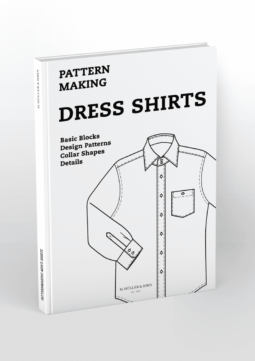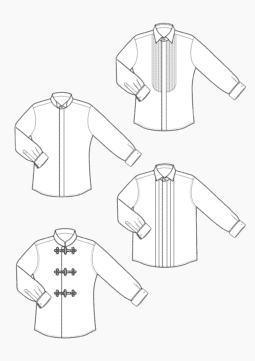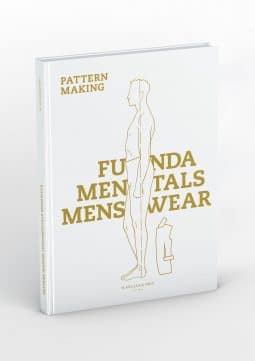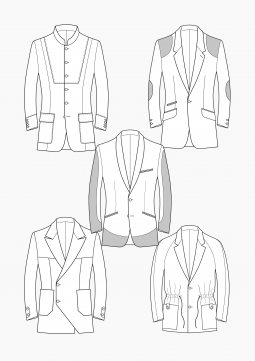Dress Shirts for Musicians and Conductors
Deutsch

Shirts for conductors need above all good freedom of movement in the arm area. Therefore, the sleeve pattern is drafted with a significantly reduced sleeve cap and thus receives a lot of movement length under the arm. This is supported by a narrower construction of the shoulder: the amount of ease included in the back width and chest width remain normal, whereby the addition to armhole depth is increased – proportionally, the shoulder is narrowed. The shirt should also be loose fitting enough to avoid sticking to the body but still fitted enough to be worn under the suit jacket, frock or conductors coat. Extra length is added to avoid slipping out of the trousers and the side slit is also slightly reduced.
In this article you will get an insight into our e-dossier “Pattern Making for Men: Dress Shirts for Conductors”. You can find the complete pattern instructions on a scale of 1:6, for normal sizes and belly sizes in the e-dossier in our online shop.
Tuxedo Shirt with Tuck Pleats
Template: Basic Dress Shirt Block for Belly Figure for Conductors
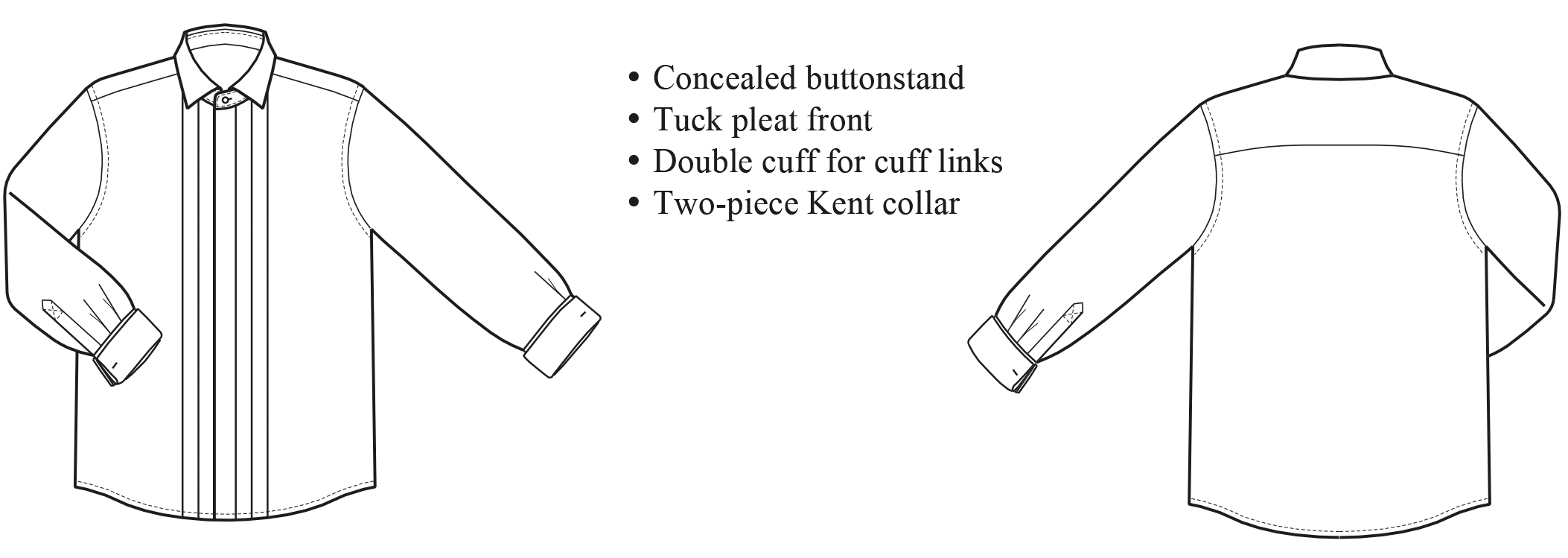
Front and Back Pattern
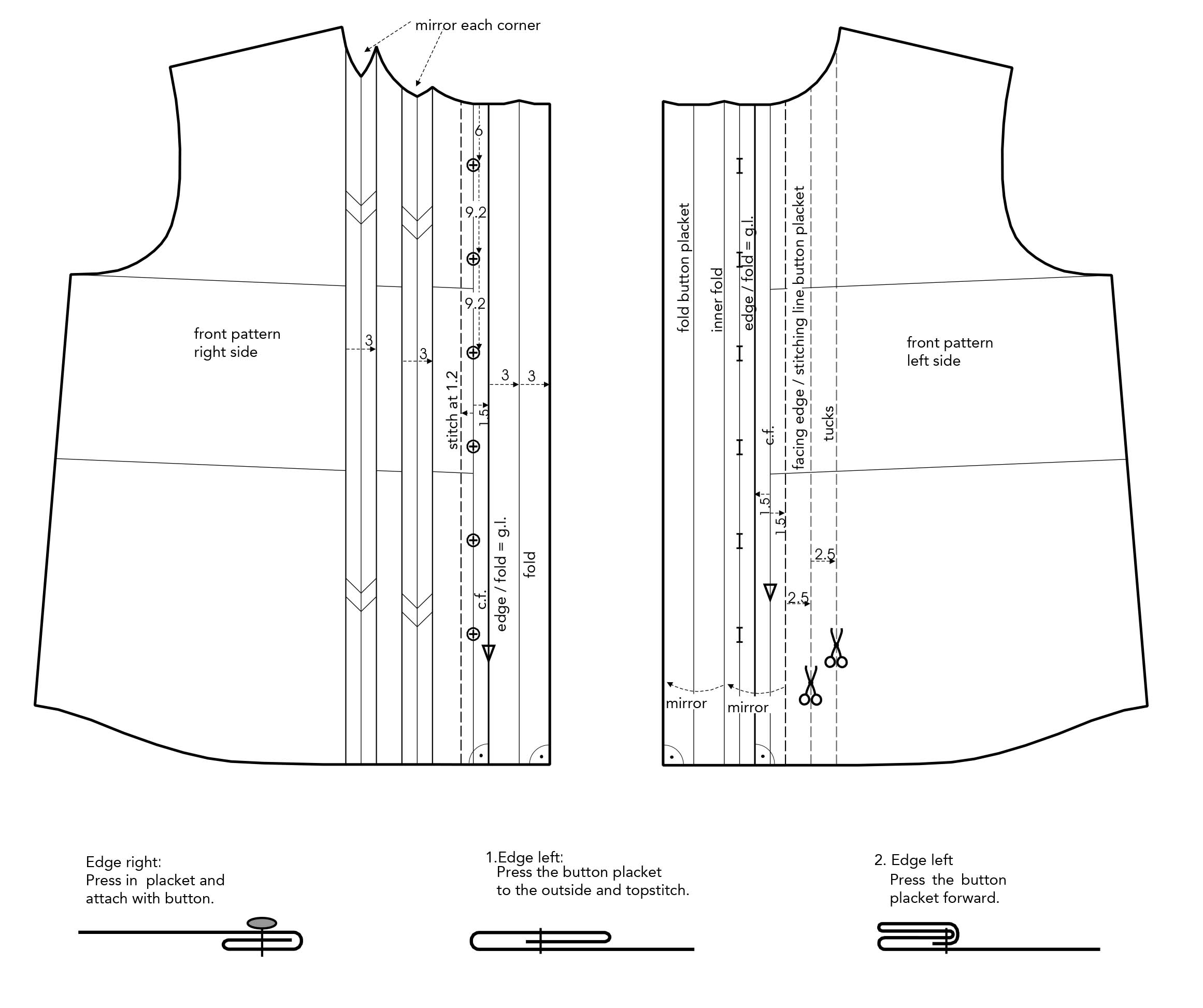
Add 1.5 cm overlap parallel to the centre front for the 3 cm buttonstand at the left front pattern. Mark the stitching line the same distance to the inside and mirror the buttonstand three times to the outside. Fold the buttonstand outward, stitch in the finished width and then press it back to the front (see also cross section illustration). For the right side, copy and Mirror the front part. Add only two times 3 cm to the overlap of 1.5 cm. Press the buttonstand twice and sew the buttons through all layers. Add less width for the overlap and buttonstand if the buttonstand is topstitched (here 1.2 cm). Mirror the neckline for the upper edge of the buttonstand. Mark the upper button 6 cm below the neckline and mark all other buttons with 9.2 cm distance. Mark the two tuck pleats 2.5 cm away from the buttonstand and 2.5 cm apart (shown on the left front). Cut through the front pattern along the pleat lines and spread 3 cm intake each pleat line. Mirror the neckline over the pleat lines and draw the new seamlines (shown on the right front). Mark the grainline parallel to the front edge. Back pattern and sleeves with cuffs are not shown here. They are taken from the basic cut. Mark the grainline parallel to the centre back and perpendicular to the elbow line. Continued in the e-dossier “Pattern Making for Men: Dress Shirts for Conductors“.
You can find more pattern construction instructions and ready-made patterns for sewing menswear in our online shop.


